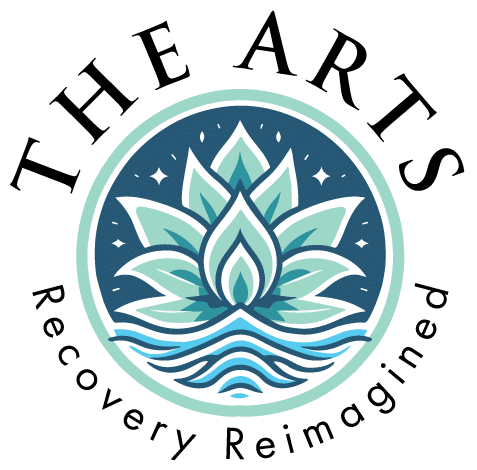A sober living house can be a life-changing step for those committed to recovering from addiction. By offering structure and support in a substance-free environment, these homes help people bridge the gap between treatment programs and a fully independent lifestyle.
Whether you’ve recently completed a treatment program or need a steady environment to maintain your recovery, knowing how to get into a sober living house can be incredibly helpful. But where do you start? Here’s what to know.
Meet Typical Requirements for Entry
Each sober living home has its own set of requirements and guidelines, but certain criteria are common across most facilities. Before you begin searching for a sober living house, you’ll want to make sure you meet the requirements for entry and that many sober living homes should follow. These include:
- Sobriety Status: Applicants are generally expected to either have completed a rehab program or be actively maintaining sobriety.
- Financial Responsibility: Residents typically pay rent and contribute to shared household expenses. Homes are often more affordable than standard rental properties, but proof of financial capability may be necessary.
- Behavioral Expectations: Homes usually expect residents to follow a code of conduct that encourages respect, honesty, and support for others in the house. Complying with curfews and participating in required activities are part of this agreement.
How to Get Into a Sober Living House
The application process for sober living homes usually involves these steps:
1. Research Suitable Options
Start by identifying sober living homes that align with your needs, recovery goals, and financial situation. Factors to consider include:
- Location
- Cost
- Type of residents (men, women, or co-ed)
- The level of structure the home provides
Many inpatient and outpatient treatment programs have a sober living component separate from the main facility, or work closely with nearby sober living homes. Ask your treatment provider for recommendations or resources to find suitable options.
2. Contact the Home
Once you have a list of potential candidates, reach out to each home and gather information about their program, requirements, rules, and regulations. Some questions you may want to ask include:
- Are there any vacancies currently available?
- What is the cost of staying at the home?
- How long is the typical stay for residents?
- What are the house rules regarding curfew, chores, visitors, etc.?
Be sure to also inquire about what services and amenities are included in the cost of living at the home. The more information you gather, the better prepared you will be to make a decision about which sober living home is the right fit for you.
3. Schedule a Tour
If you feel like you have found a sober living home that meets your needs, the next step is to schedule a tour. This will give you an opportunity to see the facilities in person and get a feel for the atmosphere of the home. It’s important to take note of how well-maintained the home is, as well as the cleanliness and organization of common areas.
During your tour, be sure to ask any additional questions you may have and observe how staff interact with residents. If possible, try to talk to current residents during your tour. They can provide valuable insights into what daily life at the home is like and whether or not they are satisfied with the level of care and services provided. Sober living homes can have many positive outcomes, like reduced drug use and better employment, so ask residents what their experience is.
4. Do Well on Your Interview
Many sober living homes require potential residents to go through an interview process. This is an opportunity for the staff to get to know you and assess if you are a good fit for their community. It is also a chance for you to ask any remaining questions and learn more about the home’s rules and expectations.
To do well on your interview, be honest about your needs and goals for sober living, as well as any concerns you may have. Show that you are committed to maintaining your sobriety and following the guidelines of the home.
5. Pay Fees and Move In
After successfully passing the interview, you will be required to pay fees for your stay at the sober living home. These fees vary depending on the location and amenities offered by the home.
Once you have paid your fees, you can move into the sober living home and begin your journey towards a healthier and sober lifestyle. Make sure to actively participate in house meetings, activities, and support groups to fully benefit from your stay at the sober living home.
Explore Sober Living in Canoga Park, CA
Taking the step to join a sober living home can be the turning point in your recovery. If you’re wondering how to get into a sober living house in Canoga Park, CA, consider exploring the sober living program at The ARTS Recovery Center. Our sober living home, Chrysalis, offers a 10-bed, co-ed structured environment where recovery is the top priority.
With a supportive community and personalized resources, Chrysalis provides a safe, welcoming space for those ready to commit to long-term sobriety. Start your path to freedom from addiction by connecting with The ARTS Recovery Center today.
Frequently Asked Questions (FAQ)
What’s the difference between rehab and sober living?
Rehab is a highly structured program designed to help individuals detox from substances and develop tools for recovery. Sober living homes provide a more flexible, long-term environment where residents can continue recovery while reintegrating into everyday life.
Who can live in a sober living home?
Anyone committed to maintaining sobriety and willing to follow house rules can live in a sober house. Many homes require residents to be drug- and alcohol-free before moving in.
How long can someone stay in a sober living home?
The length of stay varies by individual. Some stay for a few months, while others reside for over a year. Research shows the most benefits after 90 days of living at sober homes. The goal is to remain until they feel confident transitioning to independent living.
Can I work or attend school while living in a sober house?
Yes, most sober living homes encourage residents to pursue employment, education, or volunteer opportunities as a way to build independence and maintain structure. Some houses may have specific guidelines regarding work or school schedules to ensure consistency in maintaining a sober lifestyle. It is important to communicate your schedule with the house manager and follow any rules set by the home.
Are there rules in a sober living home?
Yes, there are typically house rules that residents must follow. These can range from curfews and mandatory chores to required attendance at 12-step meetings and random drug testing. Rules may also include restrictions on visitors, overnight guests, and internet usage. It is important to familiarize yourself with the rules of the sober living home before moving in.
What kind of support can I expect in a sober living home?
Sober living homes offer a supportive community environment where residents can rely on each other for emotional support and understanding. Many sober living homes also have house managers or staff who oversee the day-to-day operations and provide guidance and accountability to residents. Additionally, sober living homes may offer resources such as counseling services, job placement assistance, and transportation to recovery meetings.
Do I have to attend 12-step meetings in a sober living home?
While many sober living homes require attendance at 12-step meetings as part of their rules, not all do. It is important to inquire about this before choosing a sober living home if it is something that is important to your recovery journey. Some homes may offer alternative support group options or have a different approach to recovery. It is important to find a sober living home that aligns with your beliefs and goals for recovery.
Can I bring my own car to a sober living home?
This will depend on the specific rules and regulations of the sober living home you choose. Some homes may allow residents to bring their own cars, while others may prohibit it in order to minimize potential triggers or enablement. If having a car is essential for your daily activities and responsibilities, discuss this with the sober living home beforehand to ensure it is allowed. However, many sober living homes provide transportation services for residents who do not have access to their own vehicle.

